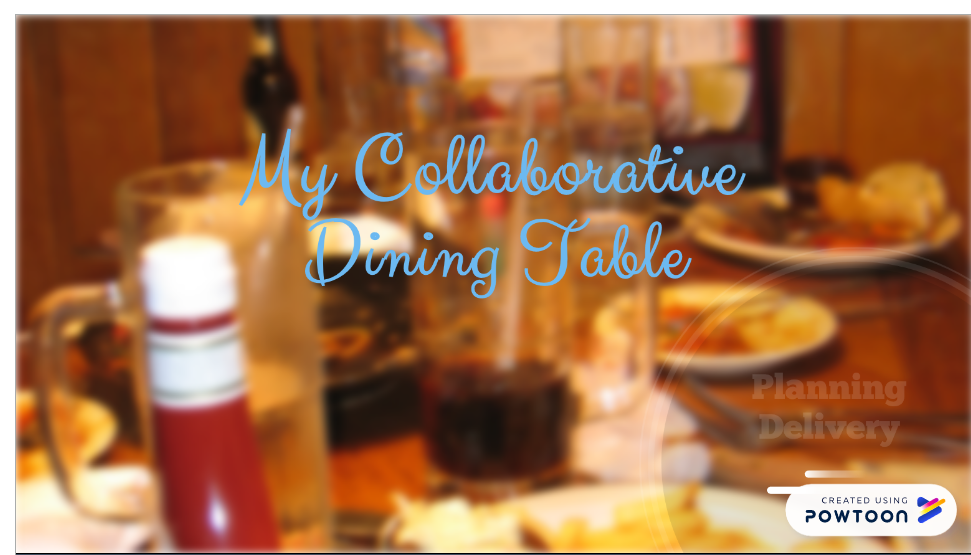
The first activity of the Collaborator Module in the Ontario Extend mOOC is to reflect upon the process and people involved in a professional collaboration project. Inspired by the creative Prezi presentation by fellow extender Melanie Jones, I decided to make a PowToon of my reflection https://www.powtoon.com/online-presentation/g5MN1zwLmJH/?mode=movie# .

Photo by Ian Schneider on Unsplash
In this module we are thinking about communities of practice. Meaning groups of people who exchange information to solve problems and improve what they do (Bates, 2014). Through this mOOC and twitter I was exposed to Melanie’s Prezi which made me think about this activity in a different way. To extend beyond the parameters of the activity and learn something new. I learned about Prezi (a software I had heard about but never used) then I took what I learned and applied it to PowToon (an account I have had for awhile but had not used). In addition, to learning new software applications I was able to think about the roles, processes and challenges of the people involved in my collaborative project.
My key takeaway is that it is important to include as many people outside of my circle to gain fresh ideas, perspectives and to work together to breathe new life into my projects. Bates (2014) proposes that in this age of digitization that communities of practice will play an important role in knowledge sharing and informal learning. From my perspective the Ontario Extend mOOC is a blend of formal and informal learning. The informal learning I am doing with my fellow extenders through reading their posts, blogs and Twitter feeds is improving what I do as an educator. According to our reading a community of practice has three primary features. In my opinion, the Ontario Extend mOOC meets all three features.
- Domain: We are a group of people focused on post-secondary education who have knowledge and experiences to share.
- Community: We are coming together to learn.
- Practice: An excellent example of practice in action is Melanie sharing her work, the tool she used and her resources. This enhanced my learning in this module and I believe, is a great example of knowledge exchange.
References:
Bates, T. (2014, October 1). Online Learning and Distance Education Resources. Retrieved from https://www.tonybates.ca/2014/10/01/the-role-of-communities-of-practice-in-a-digital-age/
eCampus Ontario. (2019). EXTEND 101-EN.1 – Extend MOOC. Module 4: Collaborator, Ways to Collaborate
Jones, M. (2019, March 11). Melrad.ca. Retrieved from MelradJones: Exploring Technology in the Classroom: http://melrad.ca/tech/the-collaborative-dining-table/h
Powtoon Link: https://www.powtoon.com/my-powtoons/?#/
Prezi Link: https://prezi.com/?gclid=CjwKCAjw4LfkBRBDEiwAc2DSlD2Xtcg4cm3y6ffsQHj6QZg3uy-b-uDQ4faiyB_kt_Sjp-HvaE-_RhoCalsQAvD_BwE
I am glad i got to read THIS. I have been examining out a few of your articles and its pretty stuff to read. I will surely bookmark your blog.
Thank you so much. I am glad you found it helpful.